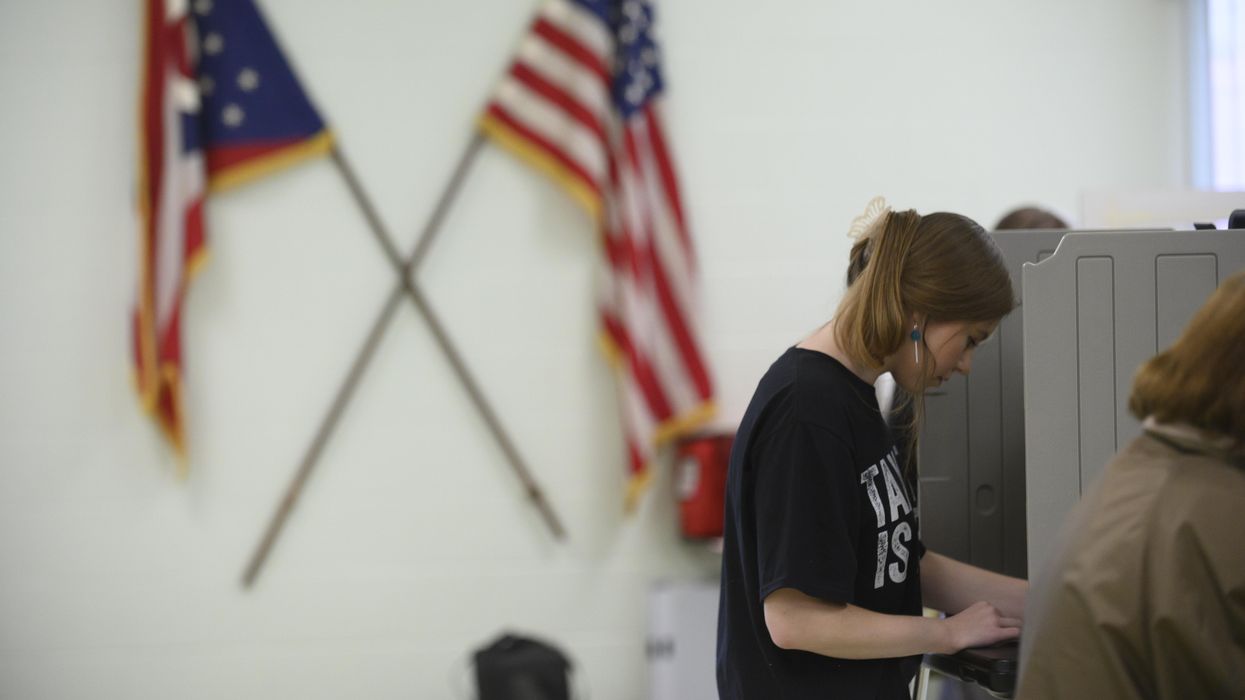Guillermo is the CEO of Ignite, a political leadership program for young women.
Some editorial writers are keen to describe the looming midterms as "the inflation election." Then again, their average readers are millionaires by household net worth. They skew 62 percent male and in their 40s. The last time I checked, the great thing about America is that it's a democracy. It includes non-millionaires. It includes women. It includes young people. It may still be news to some people, but Generation Z is increasingly influencing the outcome of elections.
Not only is our democracy diverse – the power and importance of the youth vote is also increasing. Gen Z and millennial voters will soon dominate the electorate. And particularly amongst those voters, we can't assume the issues dominating the stuffier editorials are all that count. My organization, Ignite, ran a comprehensive research survey of Gen Z youth recently and its findings were stark.
Members of Gen Z are almost twice as likely to turn out and vote this year than they were in 2018, from 35 percent to 59 percent. While inflation appears to be the leading issue motivating young voters, when you take cisgender men out of the equation, the results offer a notable contrast. For young women as well as trans and gender-nonconforming people, the top issues skew differently. Health care, mass shootings, mental health, racial inequity and abortion are their top motivators.
As political strategists are observing, women are registering to vote across the country. They're doing so in numbers that are unheard of. The recent Kansas primary is a strong test case for the power of reproductive rights as an issue. But it's about much more than abortion. If we're going to call this election anything, let's call it the young women's election. Because it's their voices that are diverging most from the major narratives in the news.
Ask any major political strategist from David Axelrod to Karl Rove. They'll tell you that when you have a large group whose views diverge from major narratives, you need to pay attention.
Gen Z is the most diverse generation on racial lines. About 17 million people will turn 18 between the 2020 and 2024 elections; 49 percent of them will be young people of color. Gen Z is also very queer: 30 percent identify as other than heterosexual, compared to only 5 percent of boomers who say similar.
Further, young people are less likely to align with a given political party. Gen Z now has two candidates — one in each party — with a chance of heading to Congress. Twenty-five-year-old Karoline Leavitt won the Republican nomination in New Hampshire's 1st district. In Florida, 25-year-old Democrat Maxwell Frost also won a crowded primary. At the local level, Gen Z is making even stronger headwinds. We saw 18-year old Shiva Rajbhandari make headlines winning his school board race in Boise, Idaho – and I can name a dozen Ignite young women who launched their campaigns for local and state office this year.
For today's young people, it's clear. Voting is no laughing matter. Some issues at stake are even likely to decide whether the planet is a habitable place to live by the time they grow old. We should at the very least factor their voices more as we shape our own narratives on the issues in any election. But I'm especially talking about this one.



















